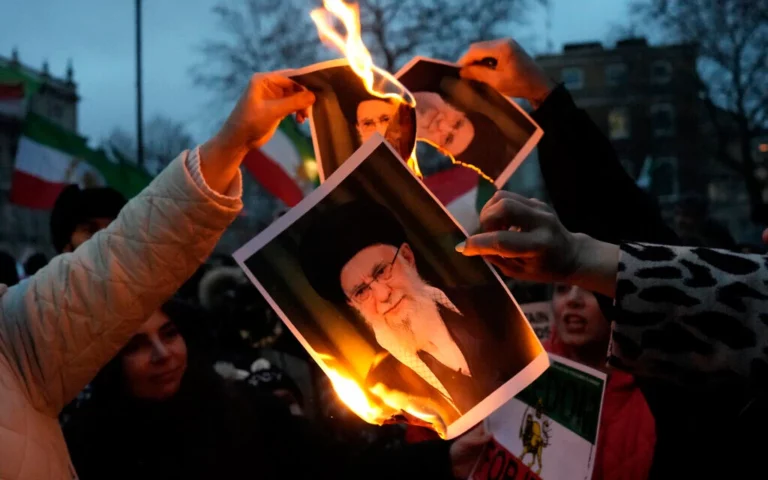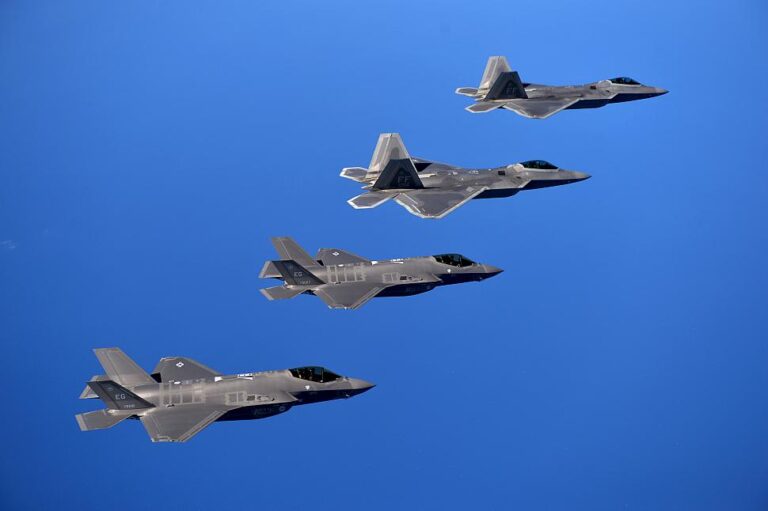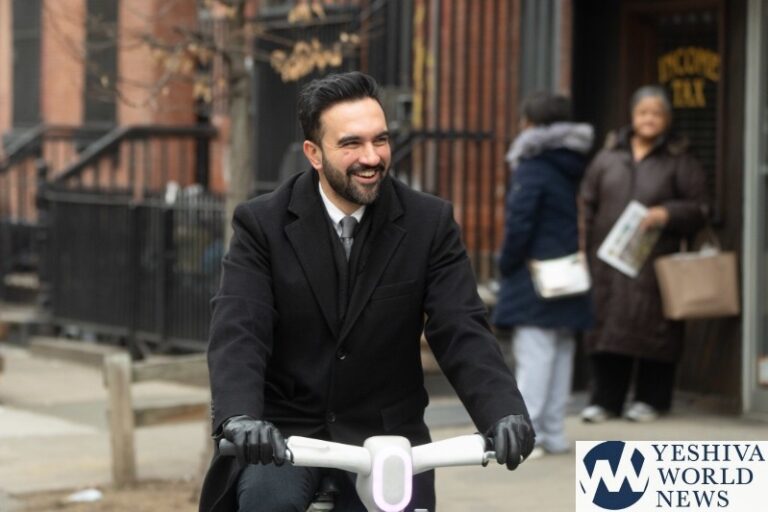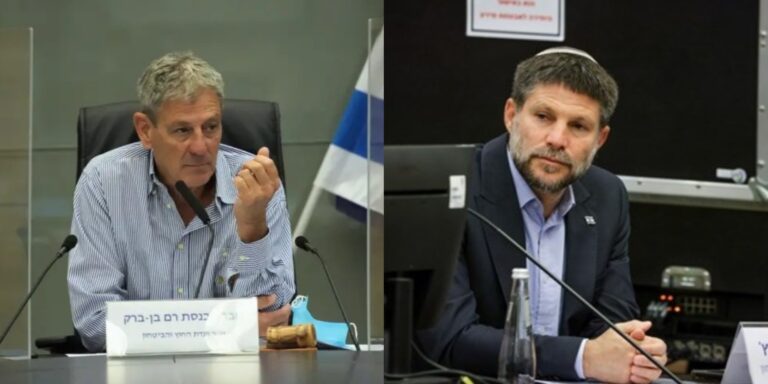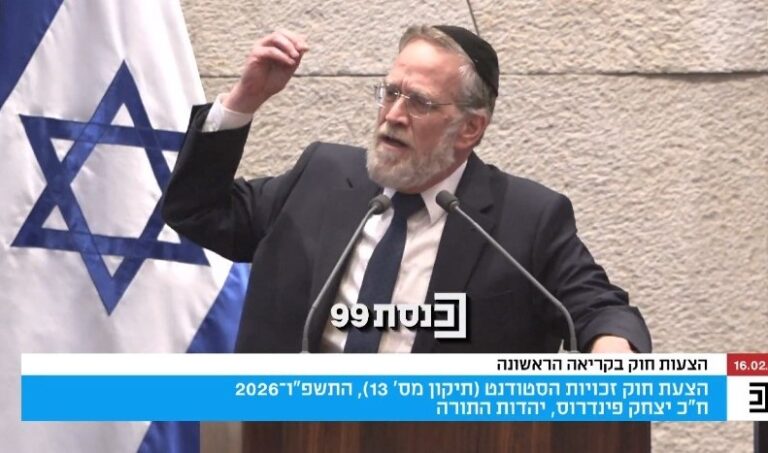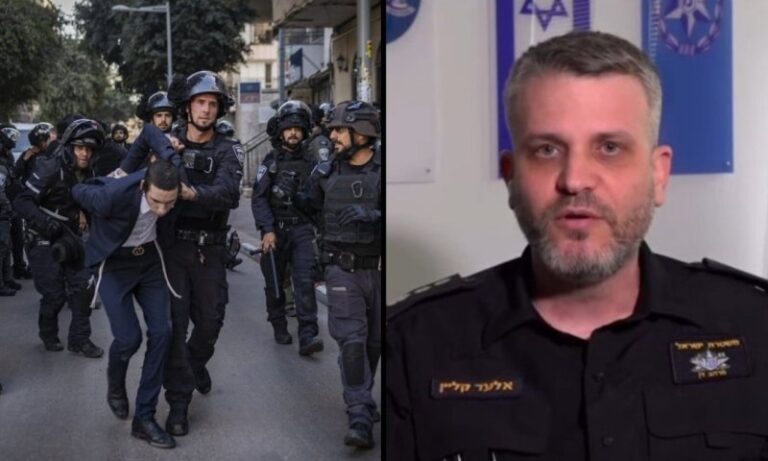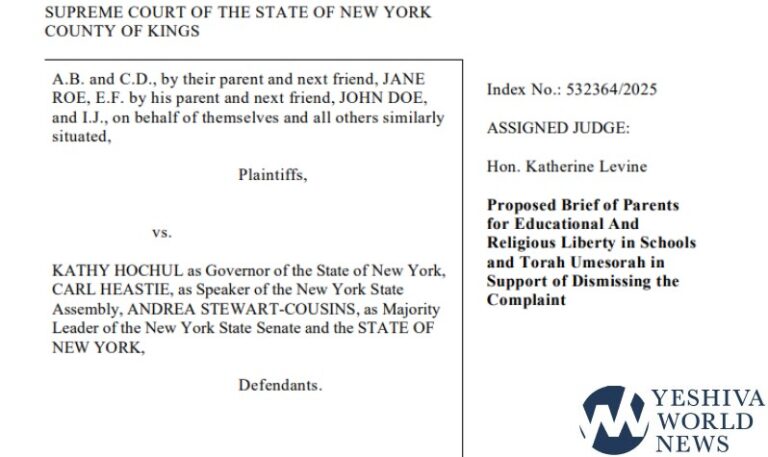Top diplomats from the Group of Seven industrialized nations gathered Saturday beside the River Mersey in Liverpool with host country Britain, seeking to demonstrate “a show of unity against global aggressors” amid a crisis over Russia’s intentions towards Ukraine.
The U.K. is seeking elusive consensus from the wealthy nations’ club in response to what it calls “malign behavior” by Russia, and over tensions with China and Iran.
“We need to defend ourselves against the growing threats from hostile actors,” British Foreign Secretary Liz Truss said as she opened the meeting of foreign ministers from the U.K., the United States, Canada, France, Germany, Italy and Japan. “And we need to come together strongly to stand up to aggressors who are seeking to limit the bounds of freedom and democracy.”
The U.S. and its NATO allies are concerned that the movement of Russian troops and weapons to the border region with Ukraine may be a prelude to an invasion and have said they would inflict heavy sanctions on Russia’s economy if that happens.
Moscow denies planning to attack Ukraine and accuses Kyiv of its own allegedly aggressive designs.
Truss and U.S. Secretary of State Antony Blinken discussed how to deter Russia from “further aggression against Ukraine” in a one-on-one meeting, the State Department said. Britain said the two warned that a Russian incursion “would be a strategic mistake for which there would be serious consequences.”
The State Department announced Saturday that the top American diplomat for Europe, Karen Donfried, will visit both Kyiv and Moscow next week “to reinforce the United States’ commitment to Ukraine’s sovereignty, independence and territorial integrity” and to seek a diplomatic solution to the crisis. After meeting with Ukrainian and Russian officials, Donfried will go on to Brussels on to talk with NATO and European Union allies.
Attempting to rally unity among disparate the G-7 club of wealthy nations, Truss said that “free democratic nations” must wean themselves off Russian gas and Russian money to preserve their independence.
She said she wanted to work with other countries “to make sure that free democratic nations are able to have an alternative to Russian gas supplies,” a reference to the contentious Nord Stream 2 pipeline that was built to carry gas from Russia to Germany, bypassing Ukraine.
Truss met on the sidelines of the gathering with Germany’s new foreign minister, Annalena Baerbock, a politician from the environmentalist Greens who previously opposed Nord Stream 2.
Britain, which is not very dependent on Russian gas, is a critic of the pipeline. But London’s financial district and property market are major hubs for Russian money, and U.K. authorities have long been accused of turning a blind eye to ill-gotten funds from around the world.
Truss insisted Britain is willing to consider new economic measures to protect its “core values,” saying “cheap energy or cheap financing” could have “a long-term cost for freedom and democracy.”
The weekend meeting at the dockside Museum of Liverpool is the final major event of Britain’s year-long G-7 presidency. The diplomats in Liverpool also plan to discuss lagging efforts to vaccinate the world against coronavirus, tensions in the western Balkans, Afghanistan and North Korea, and China’s muscle-flexing in the Indo-Pacific region.
The gathering is taking place as negotiators meet in Vienna to try to revive an ailing international deal that seeks to limit Iran’s nuclear ambitions. Blinken met German, French and British diplomats in Liverpool to discuss next steps over Iran, and the Biden administration’s special envoy on Iran, Robert Malley also stopped in the city on his way to Vienna.
Truss warned this week that the Vienna talks are “the last chance for Iran to sign up” again to the deal, which was meant to rein in Tehran’s nuclear program in return for loosened economic sanctions. It faltered after then-President Donald Trump pulled the U.S. out of the agreement in 2018 and Iran began ramping up its uranium enrichment.
Truss also invited ministers from the Association of Southeast Asian Nations to the Liverpool meeting, though many were joining remotely because of the pandemic. Delegates and journalists face daily virus tests and mask mandates at the conference, as Britain records more cases of the omicron virus variant, which scientists say will become the dominant variant in the U.K. in the next week or so.
Britain is keen to work more closely with Asian nations as part of an “Indo-Pacific tilt” following the U.K.’s departure from the 27-nation European Union last year — both to boost U.K. trade and as a counterweight to China’s dominance.
Truss told her G-7 counterparts that democracies needed to fight “economic coercion” and “win the battle of technology” — both pointed references to Beijing’s growing influence around the globe. The G-7 has launched a “Build Back Better World” initiative to offer developing nations funding for big infrastructure projects as an alternative to money from China that, the West argues, often comes with strings attached.
The U.K. chose a setting steeped in British history and culture for the G-7 event. Liverpool’s docklands, once a symbol of Britain’s global reach and economic might, came to represent the country’s post-industrial decline.
Now, the area along the River Mersey is an example of 21st century urban renewal as a leisure and cultural district, complete with a museum dedicated to the city’s most famous sons, The Beatles, where the leaders will have dinner on Saturday.
(AP)




